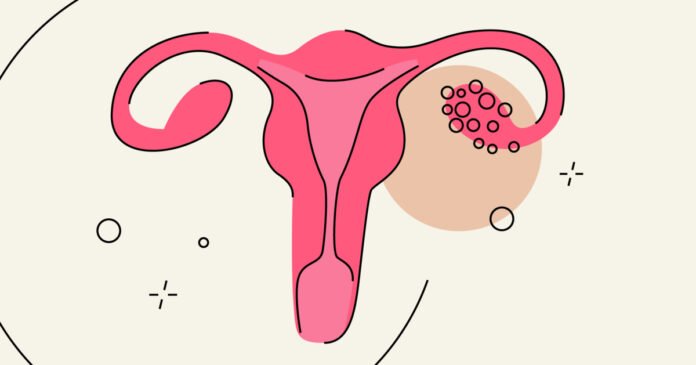Reproductive organs such as ovaries are responsible for controlling the menstrual cycle along with the production of different hormones like progesterone, estrogen, relaxin, inhibin etc. PCOD or PCOS is a condition where a woman’s hormones go out of balance, thus paving the way toward causing several symptoms.
Some of them might typically include an irregular menstrual cycle, absence of ovulation, weight gain, difficulty conceiving etc. If you are one of the individuals suffering from PCOD/PCOS, all you need to do is keep your health in check. By leaving these critical conditions untreated, one might get exposed to heart diseases, diabetes, obesity and high cholesterol.
To learn more about PCOD vs PCOS, take a quick look at this article right away. Stay tuned till the very end, and you will be able to uncover a lot of valuable insights and information in no time. Let’s delve deeper without any further ado.
What Is PCOD?
PCOD stands for Polycystic Ovarian Disease. It is a medical condition in which the ovary of a woman ends up generating partially mature or immature eggs in large volumes. After a certain point in time, these eggs convert themselves into cysts. As a result, one might suffer from unwanted weight gain, irregular periods and various other health concerns.
What Is PCOS?
PCOS typically stands for Polycystic Ovary Syndrome. Now, what is it? Well, it is a metabolic disorder that paves the way toward excess cyst formation. When compared to PCOD, fewer women deal with PCOS.
What Is the Difference Between PCOD and PCOS?
Let’s check out PCOD vs PCOS, thus developing a better understanding:
| PCOD | PCOS |
| PCOD is pretty much common in women | Fewer women get exposed to PCOS |
| It doesn’t really affect female fertility | It tends to affect female fertility adversely |
| There is no serious complications in PCOD | PCOS might lead to heart disease, high blood pressure, advanced endometrial cancer etc. |
| The complications associated with PCOD can be taken care of by the right kind of diet plan | PCOS is hard to cure. However, one can control the symptoms through medicines and lifestyle changes |
| The symptoms of PCOD are barely noticeable and less frequent | Women suffer with the given symptoms from a younger age |
| Lifestyle changes, medications and diet can improve PCOD | It demands active treatment protocols and infertility treatments. |
What Are the Common Symptoms of PCOD/PCOS?
Go through the common symptoms of PCOD/PCOS stated below in this article:
- Heavy bleeding during periods
- Unpredictable or irregular menstrual cycle
- Acne
- Excess body hair
- Obesity
- Difficulty in getting pregnant
- Sleep disorders
- Pigmentation or darkening of the skin around your neck
- Depression
What Are the Complications of PCOD/PCOS Problems?
Some of the complications include:
- Hypertension infertility
- Abnormal uterine bleeding
- Type 2 diabetes
- Premature birth
- Metabolic syndrome
- Miscarriage
- Endometrial cancer
- Non-alcoholic steatohepatitis or NASH
- Sleep apnea
What Are the Causes of PCOD/PCOS?
Check out the causes of PCOD/PCOS right away:
- Excess androgen production
- Excess insulin production
- Heredity
- Low-grade inflammation
What Are the Different Treatment Options for PCOD/PCOS?
Let’s dig deeper to learn about the different treatment options for PCOD/PCOS:
- Blood Tests: Thanks to these blood tests, understanding the hormone levels is as smooth as a cakewalk now. Some of the tests include triglyceride levels, fasting lipid profile, glucose tolerance tests and LDL or low-density lipoprotein.
- Pelvic Examination: In a pelvic examination, your reproductive organs are physically checked for abnormalities, masses or any kind of growth.
- Imaging Test: An ultrasound imaging test is done to learn more about the lining of cysts and the uterus in ovaries, the size of the ovaries etc.
Your gynecologist might ask you to opt for these additional tests, thus identifying complications:
- Screening for depression and anxiety
- Periodical monitoring of glucose tolerance, blood pressure, triglyceride and cholesterol levels
- Screening for OSA or obstructive sleep apnea
Some of the surgical and medical treatment options for PCOS/PCOD are:
- Birth control pills: You can opt for certain birth control pills containing progestin and estrogen. It tends to reduce the levels of Androgen in your body.
- Progestin: It is a synthetic progestogen that is often used to correct the absence of periods or amenorrhea.
- Clomiphene and Letrozole: They help in the process of inducing ovulation.
- Immature follicle aspiration: By reducing the total number of immature follicles, these types of treatment options can improve ovulation.
- Metformin: It assists in weight reduction along with reducing insulin resistance.
- Laparoscopic ovarian drilling: It can be considered a minimally invasive surgery. Laparoscopic ovarian drilling lowers testosterone levels.
Check out the home remedies and lifestyle modifications for PCOD/PCOS:
- Exercise on a regular basis
- Try to maintain a healthy body weight
- Limit consumption of carbohydrate
To Sign Off
Since you are now well-informed regarding PCOD vs PCOS, it’s time to opt for a treatment option and learn whether you are suffering from these conditions or not. If yes, all you need to do is get in touch with doctors at Apollo Hospital, and that’s it. These professional healthcare providers will take care of your issue, thus enabling you to heal.

